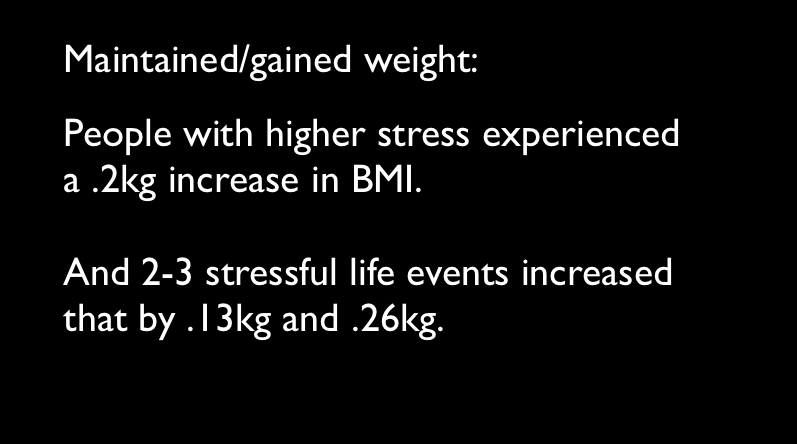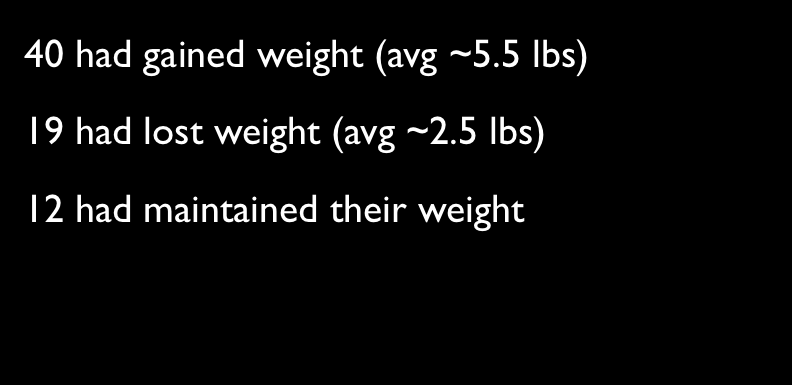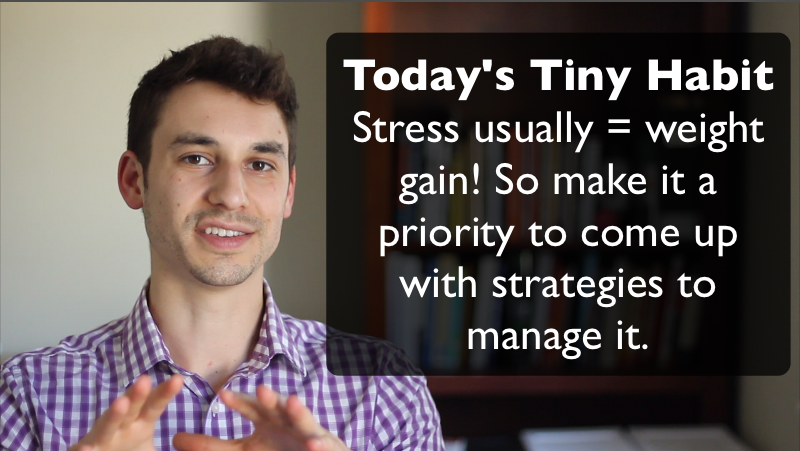
Yes, You Should Eat Cupcakes, Drink Red Wine And Enjoy Life: Here’s What Stress Really Does To Your Body

Most of us don’t really place that much of an importance on “stress management” – it seems kind of intangible and esoteric since you don’t really see it.
I mean, weight you can see, low energy you can feel, crappy sleep you really can feel in daily life.
So what impact does stress management really have on how you LOOK, like your weight, and does it actually have a very strong link?
Plus… there’s good news.
If avoiding cupcakes and red wine stress you out, you probably should just consume them.
Here’s why.
Eat Your Cupcakes and Drink Your Red Wine
What The Researchers Found About How Stressed You Are And the Link With Weight
So I dug up half a dozen studies here in particular on how stress affects health, particularly weight, and in almost every study they found a pretty clear cut correlation between how stressed you are and how much weight you gain.
In The First Study

A total of 5,118 participants were followed from 2000 to 2005. The relationship between stress and their BMI (body mass index) was assessed over time.
Among the people that maintained or gained weight, the people with high levels of perceived stressed saw a .2kg increase in weight compared to people with low stress.
Also the people with 2 or 3 stressful life events, had a .13kg and .26kg greater increase in BMI compared to people who didn’t.
So, there was a pretty clear link between stress and weight gain here.
In The Second Study

In the second study here, participants were 71 healthy women volunteers enrolled in a nurse practitioner program. They were then monitored for 12 weeks (3 months).
40 of the people had gained weight during this time period (average 5.5 pounds).
19 actually lost weight during this time period (average was 2.5 pounds).
12 had maintained their weight.
Their cortisol secretions (a measure of daily overall stress) significantly predicted the change in their BMI – BUT how well the person coped with stress changed that relationship.
So in other words, even though all the women saw the increase in stress, anxiety and depression – not all gained weight. And that was up to the individual.
This is a big, really important point here: stress uniformly increases the chances of gaining weight, but by itself doesn’t guarantee it.
Just because you’re stressed doesn’t mean you’re going to overeat or destroy a bucket of ice-cream for example, but it DOES mean that you’re going to see hormonal changes in your body that make it harder to sleep, more likely to gain belly fat, potentially affect thyroid functioning, and more.
Study #3: How You Uniquely Respond to Stress Affects Your Weight Gain
A total of 7965 British civil servants were the case subjects in this particular study.
What’s interesting here is that the relationship between work stress and weight gain in men was dependent on how the original person body’s was at the start.
So if the guy was lean at the start, despite being stressed, they would lose weight.
But someone overweight would gain weight.
And a person of a normal weight would be somewhere in-between.
I find this interesting also because each of us responds to stress differently.
Some people get a tight stomach and feel anxious and thus don’t eat, while others binge eat and go right for the ice cream.
So this is where each of us really has to know ourselves well, where we each need to come up with strategies for dealing with the stress when it shows up (and it always does).
Your Tiny Habit For Today

It’s easy to assume that looking and feeling good is about eating less and moving more, but this kind of gives a new meaning to the whole mind body spirit stuff – especially when it comes to you FEELING good and not just looking good.
Maybe you eat more, maybe you eat less, but how can you set up safeguards in your own life so you can deal with stress, and make it a primary concern in your health regime.
Are you doing what it takes for your mind to stay sane in your busy life?
What do you personally use to address stress in your own life? Tell me below.
– Alex
Sources: Study #1: http://www.ncbi.nlm.nih.gov/pubmed/23512679 | Study #2: http://www.ncbi.nlm.nih.gov/pubmed/18198314

The title of this article was misleading and confusing. The article came off as gibberish and offered zero suggestions for handling stress. As it is stress is causing my hair to fall out over my entire body. Thanks for nuthin’ MHM! 😛
Hi Hermione – it wasn’t intended to diagnose how to fix stress – just an observation of what stress does to your body (for people that are unaware). Nice email address.